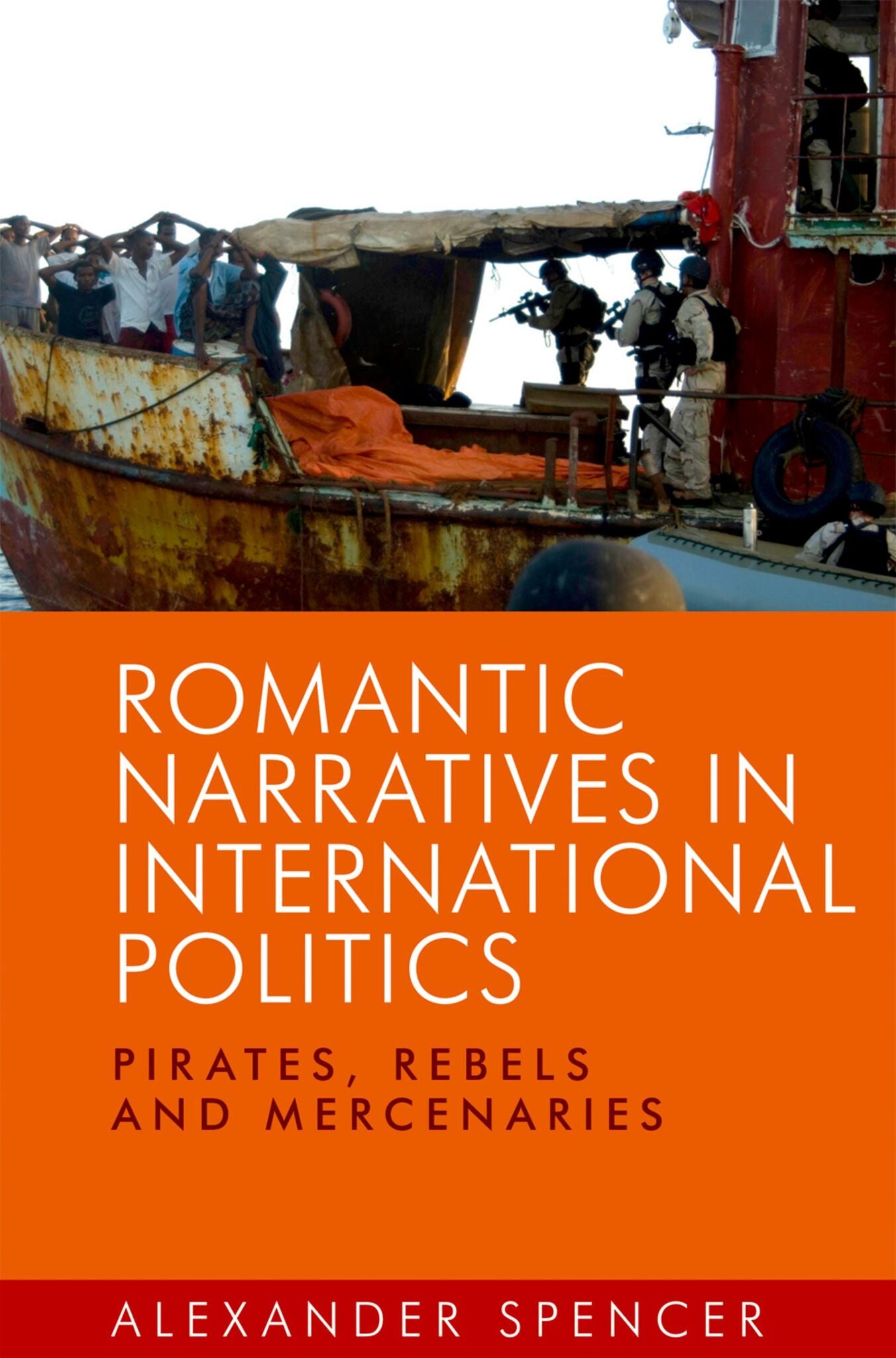We're sorry. An error has occurred
Please cancel or retry.
Romantic narratives in international politics

Some error occured while loading the Quick View. Please close the Quick View and try reloading the page.
Couldn't load pickup availability
- Format:
-
14 June 2016

By developing a new analytical method of narrative discourse analysis, this study introduces new insights from literary studies and narratology into International Relations. This method examines the romantic narratives of pirates in Somalia, rebels in Libya and private military and security companies in Iraq and argues that these best resonate with an audience if they are able to connect to culturally embedded narratives found in literature, media and pop-culture. Dominant romantic narratives marginalise other, less flattering, stories about these actors, in which they are constituted as terrorists and held responsible for human rights violations.
Focusing on the three narrative elements of setting, characterization and employment, the book argues that narratives are of fundamental importance for human cognition and identity construction. They help us understand the social and political world in which we live. The book emphasises the idea of intertextual narratability which holds that for narratives to become dominant they have to link themselves to previously existing stories.

POLITICAL SCIENCE / International Relations / General, International relations, SOCIAL SCIENCE / Criminology, Crime and criminology

Introduction: once upon a time
1. Narrative analysis as an approach in International Relations
2. German narratives of the pirate in Somalia
3. British narratives of the rebel in Libya
4. US narratives of private military and security companies in Iraq
Conclusion: The end
Index



